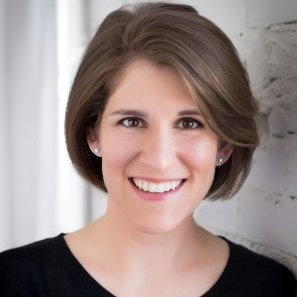The inquiries all had a familiar ring: A faith-and-work leader in another city would catch wind of Denver Institute’s 5280 Fellowship—a nine-month program that equips emerging Christians leaders in the Mile High City to serve God, neighbor, and society through their work—and call program director Brian Gray. “They’d say, ‘Would you help us start a 5280 Fellowship here?’” he says. “The thing is, the fellowship is a local expression of a bigger idea”—so it wasn’t exactly an immediately exportable product, nor did Gray want it to be.
And yet…
Denver Institute’s leaders could see from these inquiries that an opportunity existed. Certainly, there are elements of the 5280 Fellowship that could be helpful to their counterparts in other cities, so as part of CityGate—DIFW’s learning lab that brings leaders, thinkers, and makers together to drive personal transformation of Christians and bring flourishing and healing to cities—Denver Institute helps faith-and-work leaders create their own fellowships, tailored for their own cities. “It’s a multiplication strategy aimed at helping grow fruit on other people’s trees,” Gray says. “And one great benefit to us is that we get thought partners in the process, and we learn from them, too.”
CityGate’s newest partner is the Richmond Christian Leadership Initiative (RCLI), which began in 2007 and has run annual nine-month fellowships for early and mid-career Christians in the city since then. For much of that time, RCLI’s curriculum focused on specific issues—such as land use, health, multiculturalism, education—and how they play out uniquely in Richmond. “You cannot love and serve a place until you know that place,” Gray says, “and RCLI has a massive strength in helping their fellows really get to know the city, the history, the dynamics of Richmond.”
RCLI Executive Director Blaine Lay, who was an RCLI fellow in 2010, took the helm of the organization in February 2020 and began to dream about making the curriculum more robust and more formational, he says. To RCLI’s already solid work in civic education, he sought a deeper theological underpinning. “I thought, ‘I either need to build this curriculum and share it or I need to find other people in other cities that have already done it,’” he says. He got connected to DIFW through a friend of a friend and discovered what he was dreaming of.
What exactly did he find? “The curriculum is like a Mr. Potato Head,” Lay says, referencing the ubiquitous plastic potato toy that comes with an assortment of interchangeable facial features (and, oddly, feet) for a range of configurations. “If you have common values about what Mr. Potato Head can look like, it’s not prescriptive.” He adds that the CityGate curriculum has the right amount of depth and breadth. “And it’s theologically grounded without being too narrow,” Lay says. “It’s big tent, and it blends the theological with the practical. If you lean too far into the Ivy Tower theological side, you risk missing the lifeblood of a place. Too far the other direction, and you risk drifting away from the enduring things that are true.”
But CityGate isn’t just a means of securing a customizable curriculum. It’s also a learning laboratory, or what Lay calls “a community of practice, that I can benefit from and contribute to.” He says he already sees the benefit of getting answers to practical questions about retooling the scaffolding of the program—details like the application process, tuition, and fundraising—and participating in more high-minded, mission-centric conversations about how to help participants weave their faith in Christ into everything they do. And as his program grows and matures, he says, he hopes to share his own wisdom and best practices with leaders in other cities, too.
And while sharing ideas and incubating programs are good things, the ultimate goal is not, of course, a well-run fellowship or a sleek community of faith-and-work enthusiasts. The aim is equipping Christian leaders for a kind of participation in the public square that is Christ-centered. “God redeems the world, and we participate in that,” Lay says. “We want to shape a world that is more honoring of the image of God in each person and of God’s vision for His kingdom. We’re talking about leadership driven by redemptive acts that involve self-sacrifice and vision that are uniquely Gospel-oriented.”
Editor's note: To learn more about CityGate and fellowship opportunities, visit CityGate.com.

